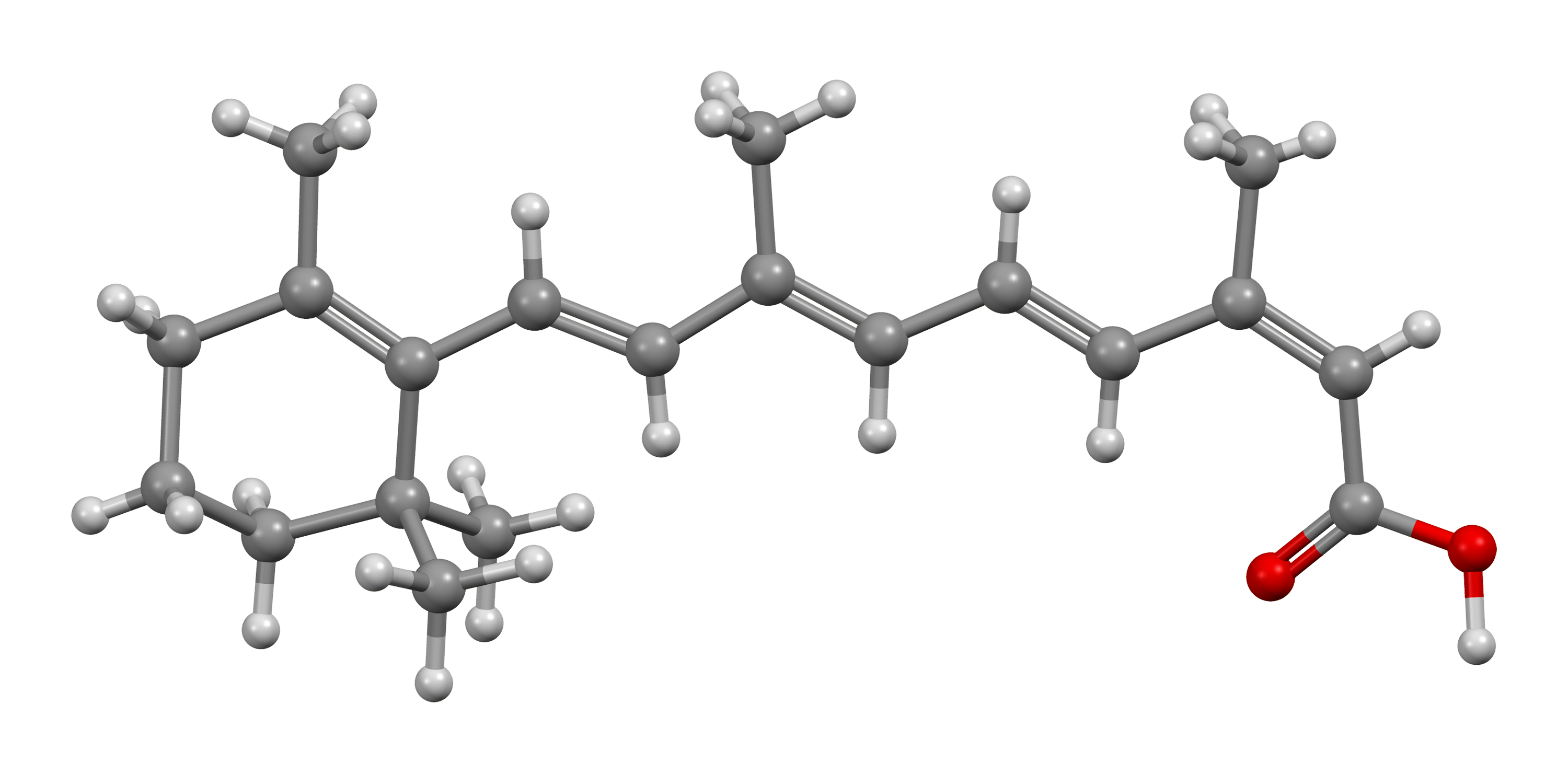| name | Isotretinoin |
| classification | Retinoid, Vitamin A derivative |
| pharmacokinetics | Isotretinoin is readily absorbed from the gastrointestinal tract. Peak plasma concentrations are usually reached within 2 to 6 hours of oral administration. It is extensively metabolized in the liver and has a long half-life, often 20-60 hours, which means the drug and its metabolites remain in the body for an extended period. This results in sustained therapeutic effects, but also poses risks for cumulative toxicity. |
| suggested dosage | | general | Dosage for isotretinoin is highly variable depending on the condition and response, and must be individually adjusted by a physician. It is crucial to follow the prescribed dosage strictly and not adjust it independently. | | typical range | Typically starts at 0.5-1 mg/kg/day and is titrated based on clinical response and tolerability, ranging from 10 mg to 100 mg per day. |
|
| indications | Isotretinoin is primarily used to treat severe, recalcitrant acne vulgaris that is not responsive to other treatments. It is typically used for nodular and cystic acne. |
| safety in pregnancy | ABSOLUTELY CONTRAINDICATED IN PREGNANCY. Isotretinoin is a potent teratogen, meaning it can cause severe birth defects. Women of childbearing potential must have a negative pregnancy test, use two forms of birth control, and engage in consistent monitoring during treatment. |
| safety in breastfeeding | Isotretinoin is not recommended for use in breastfeeding mothers. It is unknown whether isotretinoin is excreted in breast milk, and there are potential risks to the nursing infant. |
| side effects | | 1 | Dry skin and mucous membranes | | 2 | Dry eyes | | 3 | Dry mouth | | 4 | Cheilitis (lip cracking) | | 5 | Nasal dryness | | 6 | Increased risk of skin infections | | 7 | Elevated liver enzymes | | 8 | Elevated triglycerides | | 9 | Increased LDL cholesterol | | 10 | Pseudotumor cerebri | | 11 | Depression | | 12 | Psychosis | | 13 | Suicidal thoughts | | 14 | Fatigue | | 15 | Headache | | 16 | Alopecia (hair loss) |
|
| alternatives | |
| contraindications | | 1 | Pregnancy | | 2 | Severe liver disease | | 3 | Known hypersensitivity to isotretinoin or retinoids | | 4 | Active or recent history of depression or psychosis | | 5 | Severe uncontrolled hyperlipidemia |
|
| interactions | | 1 | Alcohol | | 2 | Certain medications (including other acne medications and medications that elevate triglycerides) | | 3 | Medications that increase liver enzymes |
|
| warnings and precautions | | 1 | Regular monitoring of liver function tests (LFTs) and lipid profiles is essential during treatment. | | 2 | Monitor patients for signs and symptoms of depression or psychosis. | | 3 | Counsel patients on the importance of effective contraception and frequent pregnancy tests. | | 4 | Closely monitor patients with a history of depression, suicidal thoughts, or psychiatric conditions. | | 5 | Caution patients about potential adverse effects on mental health and encourage reporting any mood changes immediately. |
|
| additional information | | 1 | Isotretinoin requires strict adherence to the treatment plan and regular monitoring by a healthcare provider. | | 2 | Patients should report any unusual side effects or concerns immediately. |
|
| patient data | |

